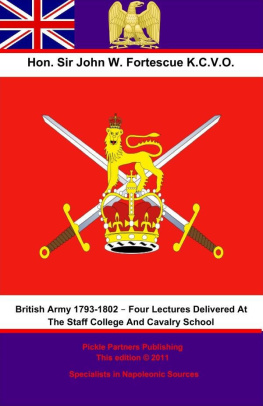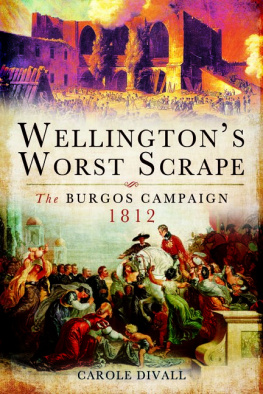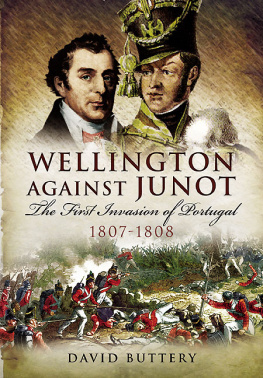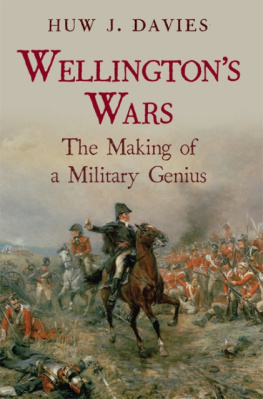This edition is published by PICKLE PARTNERS PUBLISHINGwww.picklepartnerspublishing.com
To join our mailing list for new titles or for issues with our books picklepublishing@gmail.com
Or on Facebook
Text originally published in 1925 under the same title.
Pickle Partners Publishing 2015, all rights reserved. No part of this publication may be reproduced, stored in a retrieval system or transmitted by any means, electrical, mechanical or otherwise without the written permission of the copyright holder.
Publishers Note
Although in most cases we have retained the Authors original spelling and grammar to authentically reproduce the work of the Author and the original intent of such material, some additional notes and clarifications have been added for the modern readers benefit.
We have also made every effort to include all maps and illustrations of the original edition the limitations of formatting do not allow of including larger maps, we will upload as many of these maps as possible.
WELLINGTON
By
SIR JOHN FORTESCUE
CHAPTER I
THE family of Wellesley appears to trace its origin to Devon, the name having passed from its primitive form of Westleigh through the corruptions of Westley and Wesley before it assumed, little more than a century ago, its present familiar shape. There is evidence that a Wellesley was already in Ireland in the thirteenth century. The family of Colley is conjectured to have come from Gloucestershire; and a branch of it was settled in Ireland early in the sixteenth century. No man bearing either name seems to have attained to any great prominence in the Irish branch until, in 1746, Richard Colley of Castle Carbury, Kildare, was created a peer of Ireland. Having in 1728 succeeded to the estates of his cousin, Garrett Wesley of Dangan and Mornington, in County Meath, he took the additional surname of Wesley, and chose for his title the Barony of Mornington. Upon his death he was succeeded by his son Garrett, who in 1760 was advanced in the peerage by the titles of Earl of Mornington and Viscount Wellesley. He is said to have owed his promotion to his musical talents, which commended him to the favour of George III, himself an enthusiast over music. Undoubtedly he possessed unusual gifts in the most emotional of the arts, and his name survives as the composer of double-chants and of one or two glees to this day.
This musical Lord Mornington married Anne Hill, daughter of Arthur, first Viscount Dungannon, who bore him nine children: Richard, afterwards Marquess Wellesley, born in 1760; William, later Lord Maryborough, born in 1763; two sons, Arthur and Francis, who died in early boyhood; a daughter, Anne, born in 1768; Arthur, the future Duke of Wellington, born on some uncertain day at the very end of April or beginning of May 1769; Gerald, later a prebendary of Durham, born in 1770; a second daughter, Mary, born in 1772, who died in 1794; and Henry, later Lord Cowley, born in 1773.
Lady Mornington is said to have been a cold and austere woman; but, if a portrait of her in old age can be trusted as a guide, she must have been remarkably beautiful, which would be enough to attract any Wellesley, let alone one with a touch of musical genius. In any case, if she spoiled any of her children, it must have been the eldest, a brilliant and beautiful boy: certainly it was not Arthur. We know little of Arthurs childhood but enough to be sure that it was not happy. He was not very strong physically, and was shy and unsociable. Possibly he was rather overpowered by his elder brothers, and he seems to have received no more sympathy from his sister than from his mother.
He inherited his fathers love of music, and learned to play the violin with some skill; but his father died when the boy was twelve years old, and any kindly influence that may have flowed from him was lost. The lad was driven back upon himself; and the key of his character became self-repression.
In the matter of education Arthur was sent first to a preparatory school at Chelsea and then to Eton; but his mothers means were too scanty to permit him to stay at Eton after his fathers death, and she took him away with her to Brussels, where he received private tuition. Lady Mornington then decided that her ugly boy was fit food for powder, and in 1786 she sent him to a military academy, which was principally a riding-school, at Angers. Here he remained for about a year, when, through the interest of his brother, Lord Mornington, he obtained a commission as ensign in the Seventy-third Highlanders, then serving in India. So far he had learned at least to speak and write French, if not with perfect idiomatic correctness, at least with facility and resolution, and to acquire a rather ugly seat on a horse.
Within six months of donning the red coat, in November 1787, he was appointed aide-de-camp to two Lords-Lieutenant of Ireland, first the Duke of Buckingham and later Lord Westmorland, remaining on that staff until March 1793. Meanwhile, as was the fashion in those days, he passed rapidly from regiment to regiment in the way of promotion. On the 25th of December 1787 he was advanced to a lieutenancy in the Seventy-sixth Foot, which was just coming to birth as one of four new regiments raised for service in India. By this manoeuvre, no doubt, he obtained his lieutenancy without purchase, but, as he had no wish to proceed to India, he exchanged on the 23rd of January 1788 into the Forty-first, then in process of transformation from a corps of Invalids into a regular regiment of the Line, and therefore also containing a few subalterns who had not bought their commissions. Finally, on the 25th of June in the same year, he was transferred to the Twelfth Light Dragoons, whereby he secured the convenience of belonging to a regiment which was, and indeed for nearly seventy years had been, quartered in Ireland. On their muster-rolls he remained for three years, until on the 30th of June 1791 he obtained a company in the Fifty-eighth Foot, once again apparently without purchase and possibly by the favour of the Lord-Lieutenant, for the Fifty-eighth was on the Irish establishment. On the 31st of October 1792 he was transferred to the Eighteenth Light Dragoons, also quartered in Ireland at that time, and so accomplished his sixth change of regiments within five years.
Whether he did regimental duty with any of these corps is extremely doubtful. Some of them perhaps he never joined nor even saw, but he probably presented himself at the depot of the Seventy-third, and he certainly was for a time with the Fifty-eighth. It may have been there that he caused a private to be weighed, with and without his kit and accoutrements, so as to judge of the burden that the soldier was expected to carry.













